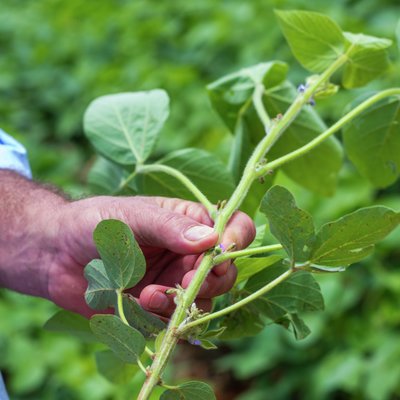Aquaculture dialogue advances Brazil's sustainable soy program
Competitive differences aside, in another initiative Skretting and salmon feed producers Cargill Aqua Nutrition, BioMar and Mowi have joined forces with certification organisation ProTerra and a number of soybean farmers to ensure that value chains can take a responsible approach to sourcing soy from Brazil.

This new roundtable group, called "Aquaculture Dialogue for Sustainable Soy Sourcing in Brazil," recognizes that Brazilian agricultural practices and deforestation have come under intense environmental scrutiny and that since salmon feeds often contain soy products from Brazil, These concerns could have an impact on aquaculture supply chains.
Although European salmon feed producers only purchase certified deforestation-free soy from Brazil, the partners have determined that in the interest of the health of our planet and to help tackle the climate crisis, collaborative action is required in a number of key areas within the soy production sector. These include traceability, transparency, supplier code of conduct, and deforestation.

The dialogue group has already put in place a new traceability system. Through this platform, each shipment delivered to food producers now includes information on the municipalities and states from which the soybeans in that batch come.
This provides us with the means to quickly determine whether a farm is fully compliant with supply requirements and also carefully complies with all environmental, labor and human laws.
Thanks to these new changes, it has been possible to establish long-term sustainable purchasing and supplier policies that prohibit the supply of soy products from illegally deforested areas. Looking ahead, the group has also stated that it will welcome initiatives that go beyond the supply chain approach, to drive a positive future for forests.
CJ Selecta believes that it is moving in the right direction and that it will also be able to meet future market demands in terms of greater transparency, improvements in environmental actions and innovation in production areas, as well as offering open communication to customers, partners and society at large.
Supplier Case Study: CJ Selecta's Seven Steps to Increasing Sustainability
Over the past decade, South American soybean processor CJ Selecta has focused on protecting Brazil's natural resources, especially those in the Amazon and Cerrado biomes. The supply of certified non-GMO soybeans, produced in accordance with international environmental and social standards, has been fundamental in this strategy.
Amid ongoing socio-environmental debates around the soy industry and the growing global demand for sustainable products, the company has selected seven targets that it says will collectively offer a framework for improving the sustainability of its operations and activities in the coming years.
Based on the analysis carried out during 2019 to identify the Sustainable Development Goals, these objectives are:
- Establish a sustainability department in charge of developing the company's sustainability strategy (achieved in 2019).
- Stop sourcing soybeans in the Amazon biome by 2022.
- Audit 100% of agricultural areas by 2022.
- Publish its first annual report of the Global Reporting Initiative (GRI) (expected in 2020).
- Implement a greenhouse gas (GHG) indicator.
- Reduce your carbon footprint.
- Maintain support for effective anti-deforestation strategies in the Cerrado biome
With these measures, CJ Selecta believes that it is moving in the right direction and that it will also be able to meet future market demands in terms of greater transparency, improved environmental actions and innovation in production areas. in addition to offering open communication to customers, partners and society in general.